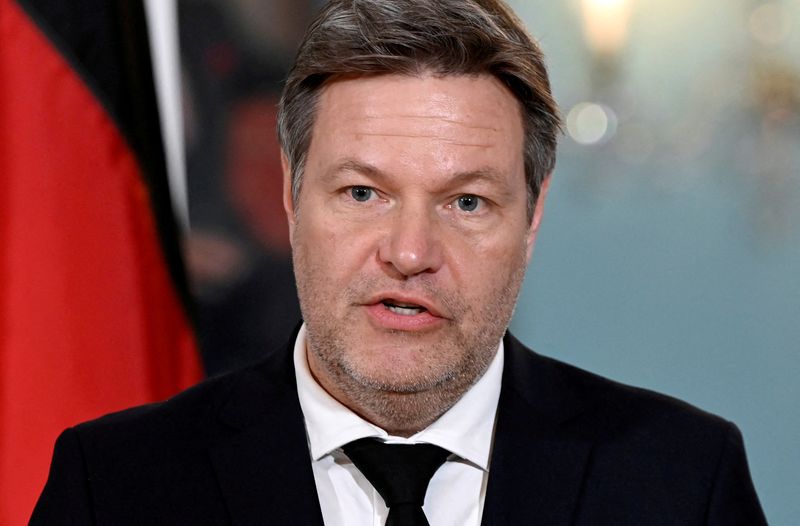By Vera Eckert
FRANKFURT (Reuters) -Germany will do most of the work this year to prepare its power market for greater reliance on renewable supplies by the end of the decade, Economy Minister Robert Habeck said on Monday.
Habeck aims to overhaul the 550 terawatt hours a year (TWh) market as demand increases and production shifts to more intermittent sources as Europe’s biggest economy moves away from fossil fuels under its climate commitments.
“We will do most of the necessary work in 2023,” he said at a consultation meeting on power market reform.
Berlin’s goal is to generate 80% of electricity from wind and the sun by 2030, a target that has become more pressing since the drop in Russian fossil fuel exports to Germany last year.
To back up swings in green power as more reliable nuclear and coal production is phased out, the government will prepare tenders for gas-fired power capacity, Habeck said.
A strategy for the tenders will be ready this quarter, he said, emphasising that gas will later be replaced with lower-carbon alternatives such as hydrogen made from clean power via electrolysis.
A further challenge will be the simultaneous increase in demand for power to run electric cars and heat pumps.
Germany’s plan could set it apart from some other European Union countries holding on to more stable sources of power, said Habeck.
“Creating alternative baseload will be a specific challenge,” the minister said. “In a way, it will be like teaching an elephant how to dance.”
Industry representatives said Germany should be pragmatic and could learn from experiences elsewhere.
Britain introduced a so-called capacity market in 2014 to lure investors into renewables and cut its carbon intensity sharply, said Samuel Alt of Siemens Energy.
“Let’s look at what worked elsewhere so not to lose time,” Alt said.
Daniel Hoelder, a representative of renewable developer Baywa r.e., said that tax credit incentives proposed by the U.S. administration for renewable resources were “a very, very interesting option”.


